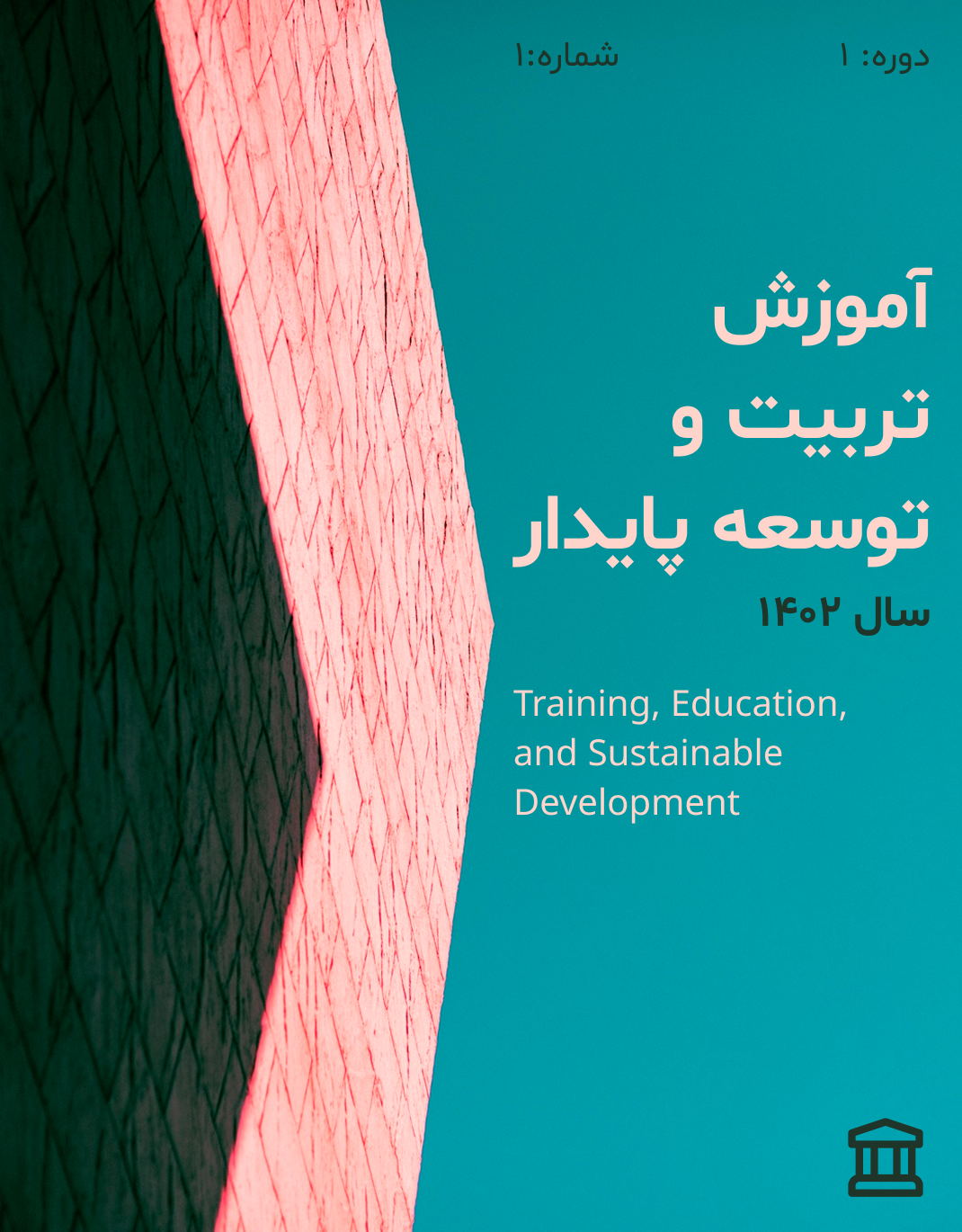Identifying the Dimensions of Citizenship Education in the Content of Secondary School Textbooks
Keywords:
Citizenship education, textbook content, secondary education, thematic analysis, civic learningAbstract
The present study aimed to identify the dimensions of citizenship education reflected in secondary school textbooks based on the perspectives of teachers, curriculum planners, and educational experts. This qualitative study employed a thematic analysis approach. Data were collected through semi-structured interviews with 25 participants, including teachers, educational experts, and curriculum developers in Tehran. Purposive sampling was used and interviews continued until theoretical saturation was reached. All interviews were recorded, transcribed, and analyzed using NVivo software. Thematic coding was conducted in three stages: open, axial, and selective coding. Data analysis led to the identification of three main categories: "ethical citizenship," "political-civic citizenship," and "environmental and global citizenship." These categories included subthemes such as honesty, social responsibility, political awareness, national belonging, environmental literacy, and global responsibility. Participants noted that current textbooks primarily emphasize traditional moral values while neglecting contemporary aspects of citizenship such as media literacy, critical thinking, and active civic engagement. The findings indicate that secondary school textbooks lack a coherent and integrated structure for addressing citizenship education, and several crucial dimensions are overlooked. There is a need to revise the curriculum through an integrative, localized, and problem-oriented approach to better promote democratic and participatory values.
Downloads
References
Ajiboye, J. O., & Silo, N. (2008). Enhancing Botswana children's environmental knowledge, attitudes and practices through the school civic clubs. International Journal of Environmental & Science Education, 3(3), 105–114.
Banks, J. A. (2017). Diversity and citizenship education: Global perspectives. John Wiley & Sons.
Gholami, K. (2012). Moral education in Iran: A historical and contemporary analysis. Journal of Moral Education, 41(4), 501–516.
Hoskins, B., & Crick, R. D. (2010). Competences for learning to learn and active citizenship: Different currencies or two sides of the same coin? European Journal of Education, 45(1), 121–137.
Kerr, D. (1999). Citizenship education: An international comparison. International Review of Curriculum and Assessment Frameworks.
Osler, A., & Starkey, H. (2006). Education for democratic citizenship: A review of research, policy and practice 1995–2005. British Educational Research Association.
Print, M. (2007). Citizenship education and youth participation in democracy. British Journal of Educational Studies, 55(3), 325–345.
Sadeghi, A., & Sepahi, Z. (2018). The hidden curriculum of Iranian school textbooks. Journal of Curriculum Studies, 50(2), 179–195.
Shahvali, M., & Ghaffari, M. (2020). Analysis of the civic education content in Iranian secondary school textbooks. Educational Research and Reviews, 15(9), 512–520.
UNESCO. (2015). Global Citizenship Education: Topics and Learning Objectives. Paris: United Nations Educational, Scientific and Cultural Organization.
Ziaee, P., & Yousefi, M. (2019). Globalization and educational change in Iran: Challenges and strategies. Compare: A Journal of Comparative and International Education, 49(6), 895–911.
Downloads
Published
Submitted
Revised
Accepted
Issue
Section
License

This work is licensed under a Creative Commons Attribution-NonCommercial 4.0 International License.


